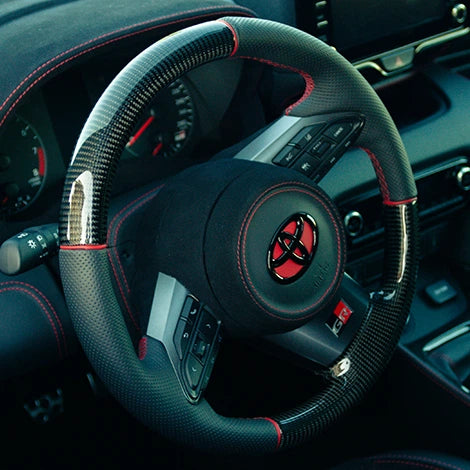Are Aftermarket Steering Wheels Safe?
Upgrading your steering wheel can enhance your vehicle’s look, comfort, and performance—but safety should always come first. Many drivers wonder: Are aftermarket steering wheels actually safe? The answer depends on the product quality, proper installation, and legal compliance.
In this guide, we’ll cover:
✅ Safety risks of cheap or poorly made steering wheels
✅ Airbag compatibility & legal regulations
✅ How to choose a safe aftermarket steering wheel
✅ Professional installation vs. DIY risks
Whether you’re modifying a car, truck, or SUV, understanding these factors will help you make an informed decision. Let’s dive in!
1. Potential Safety Risks of Aftermarket Steering Wheels
Not all aftermarket steering wheels are created equal. Low-quality or improperly installed wheels can pose serious risks, including:
- Airbag malfunctions – Many modern vehicles have airbags integrated into the steering wheel. A non-compatible replacement could disable this critical safety feature.
- Weak materials & poor construction – Cheap knockoffs may crack, bend, or fail under stress, increasing the risk of accidents.
- Improper fitment – A wheel that doesn’t align correctly can affect steering responsiveness and control.
Pro Tip: Always buy from reputable brands that meet DOT (Department of Transportation) and OEM (Original Equipment Manufacturer) safety standards.
2. Airbag Compatibility & Legal Concerns
Does an Aftermarket Steering Wheel Affect Your Airbag?
If your vehicle has a factory airbag, replacing the steering wheel with a non-airbag model could:
❌ Void your insurance in case of an accident
❌ Violate road safety laws in some regions
❌ Reduce resale value of your vehicle
Solution: Look for airbag-compatible aftermarket wheels or retain your OEM airbag system when upgrading.
Are Aftermarket Steering Wheels Street Legal?
Laws vary by country and state, but generally:
✔ In the U.S., DOT-approved wheels are legal (but removing airbags may not be).
✔ In Europe, TÜV certification is required for aftermarket parts.
✔ Some states prohibit deep-dish or racing wheels on public roads.
Always check local regulations before purchasing!
3. How to Choose a Safe Aftermarket Steering Wheel
To ensure your new steering wheel is both stylish and safe, consider:
🔹 Material Quality – Opt for high-grade leather, reinforced polymers, or forged metals.
🔹 Hub Adapter Compatibility – Ensures proper fitment with your vehicle’s spline pattern.
🔹 Professional Installation – A certified mechanic can ensure proper alignment and airbag functionality.
4. DIY vs. Professional Installation: Which is Safer?
While some enthusiasts install steering wheels themselves, professional installation is recommended for:
✔ Airbag-equipped vehicles (wrong wiring can trigger malfunctions)
✔ Vehicles with advanced electronics (some modern cars have steering angle sensors)
✔ First-time modders (avoid stripped bolts, misalignment, or loose fittings)
If you DIY, always disconnect the battery and follow a trusted guide for your specific vehicle.

Final Verdict: Are Aftermarket Steering Wheels Safe?
Yes, if you choose a high-quality, compatible wheel and install it correctly. Avoid no-name brands, check legal requirements, and prioritize safety features like airbag retention.
Looking for a Safe Upgrade?
We offer DOT-compliant, airbag-ready steering wheels for cars, trucks, and SUVs. Browse our collection or contact us for expert advice!
Have Questions?
Drop a comment below or reach out—we’re happy to help you find the perfect and safest steering wheel for your ride! 🚗💨
